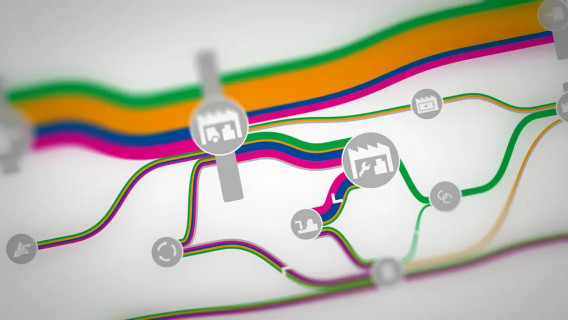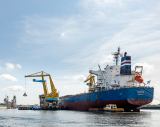Amsterdam has the intention to become a fully circular city by 2050. A city where we reuse materials, avoid waste, and close resource cycles. To track this we need a lot of data so that we can assess to which extent materials are used, reused, or wasted. This data is however not always publicly available, complicated to analyse, and sometimes not even registered. These topics around circular data will all be covered in this edition of data dilemmas.
The Circular Economy Monitor Amsterdam charts the extent to which Amsterdam’s economy is becoming more circular and identifies areas where more needs to be done. Mersiha Tepic, Senior Researcher at the Research & Statistics department of the municipality of Amsterdam, will give a demo of the Monitor and elaborate on her data dilemma in this project: the lack of data from significant (commercial) parties in the city.
The online supermarket Picnic, is very on top of its own data. Our second speaker Maarten Sukel is Data Scientist working at Picnic Technologies. He will present how Picnic uses cutting-edge methods that combine traditional data sources with pictures, written descriptions, and geographical information to predict what products their customers will want next, and how to minimize waste.
The last speaker of the day will be Joris Bouwens. Joris is a project manager and senior consultant in the Metabolic’s Circular Industries team. He will present what Digital Product Passports are and the huge opportunity they give for a more circular economy.
Agenda
- 15:45 – 16:00 Walk-in
- 16:00 – 16:10 Welcome and introduction by Amsterdam Smart city
- 16:10 – 16:25 Demo of the Circular Economy Monitor Amsterdam by Mersiha Tepic (municipality of Amsterdam
- 16:25 – 16:35 Maarten Sukel (Picnic) on using data science to minimize waste.
- 16:35 – 16.45 Joris Bouwens (Metabolic) on digital product passports.
- 16:45 – 17:00 Q&A and panel discussion
- 17:00 – 17:30 Wrap-up and drinks
About the Data Dilemma’s series
Data Dilemmas is a collaboration between Amsterdam Smart City and the City of Amsterdam’s Data Lab. Three times a year we explore the possibilities for using data and new technologies to address urban and societal challenges, with a focus on responsible digitalization. The goal is to use data to make cities more safe, clean and accessible. But what happens to all the data that is collected? Which dilemmas do we encounter when we collect (personal) data to improve the city? These questions are important for everyone: governments, knowledge institutions, companies, and civil society. Amsterdam Smart City would like to explore with you which decisions are needed for responsible use of data.
Location
Marineterrein, Kattenburgerstraat 5, Building 027S
Source Image: Gemeente Amsterdam, Onderzoek en Statistiek.





